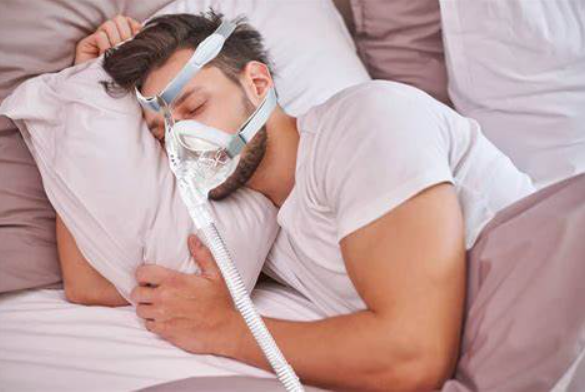

Normal daily life work can be tiring if you haven't had a good night's sleep, which can be due to many reasons, one of which is sleep apnea. Not only can it be tiring, but it also affects your performance and focus. Sleep apnea can cause sudden death if left untreated for a long period of time, especially if you have passed your teen phase.
Although sleep apnea treatment is not costly compared to other treatments, it can take a long time to get rid of it. Let's jump into this article to learn further about sleep apnea and its warning signs.
Sleep apnea is a sleep disorder that causes a breathing-related problem that usually happens when you are asleep and can happen to anyone. There are two types of sleep apnea: obstructive sleep apnea and central sleep apnea. Obstructive sleep apnea is mild, and the issue is on the surface level like a blocked nose. Central sleep apnea is a deeper problem that involves blockage in the airways and lungs or dysfunctionality of breathing sense.
If you stop breathing and, after a while, again start breathing when you are asleep, then you might have obstructive sleep apnea or central sleep apnea. Obstructive sleep apnea occurs when your throat relaxes to a level where it blocks the air pathway to the lungs resulting in improper consumption of blood oxygen levels by the brain and body. Many people can develop obstructive sleep apnea due to a blocked nasal passageway which is not a big issue.
Snoring is a normal thing but not always, and not regularly. Beware of sleep apnea snores and their symptoms before it's too late. Some common symptoms of sleep apnea include:
It's a good question about when to see a doctor. Symptoms like snoring and waking up with a dry mouth occasionally is not a big deal; it happens to everyone once in a while moon. Complex sleep apnea might require major surgery.
Thus, consulting a sleep specialist or a doctor is crucial to diagnose sleep apnea. You should also see a doctor if you see the following symptoms.
Oral appliances like CPAP machines are one of the most common treatments for sleep apnea. CPAP stands for continuous positive airway pressure. This machine provides mild air pressure through a mask which opens the air pathway to the lungs while you sleep—allowing a sufficient supply of oxygen to the mind and body, which is required during the night or while you sleep.
Obstructive sleep apnea is the most common sleep apnea that can happen to anyone. This generally occurs when the back of your uvula, tonsils, tongue or throat muscles relaxes too much, creating a slight blockage in the air path of the lungs, which causes shortness in the delivery of air to the lungs.
The brain sees this pattern and briefly wakes you up so you can reopen the pathway and consume enough air to supply oxygen. This happens the entire night, resulting in other sleep apnea problems. Due to this reason, people with sleep apnea feel tired and have excessive daytime sleepiness.
Congestive heart failure. It happens because the heart has to pump more thick blood to compensate for the lack of oxygen.
Risk of diabetes.
Low metabolism due to improper oxygen supply.
Sleep disorders don't only occur due to specific medical conditions but also because of some lifestyle habits. You can treat sleep apnea by exercising and making healthy lifestyle choices. You can also avoid some things like smoking to prevent sleep apnea from occurring. Some of the risk factors of sleep apnea are:
People who smoke are more likely to develop sleep apnea as it causes breathing problems. Also, obstructive sleep apnea increases due to it.
There is a connection between asthma and sleep apnea, according to researchers. So if you have asthma, then there is an increased risk of obstructive sleep apnea (OSA).
Having overweight means more fat deposits in the upper airway that can cause block the airway and, ultimately, cause sleep apnea.
Sleep apnea treatment can be long, but it's worth the patience and time. Not only do you get cured of abnormal breathing, but it can also improve your lifestyle, including mood, focus and concentration. It's better to be on the safe side rather than carrying a fatal disease with you.
People who sleep alone may not notice the symptoms for some time as it's nothing serious initially. Try having a bed partner to monitor you at night if you suspect that you have sleep apnea.
Leave a comment